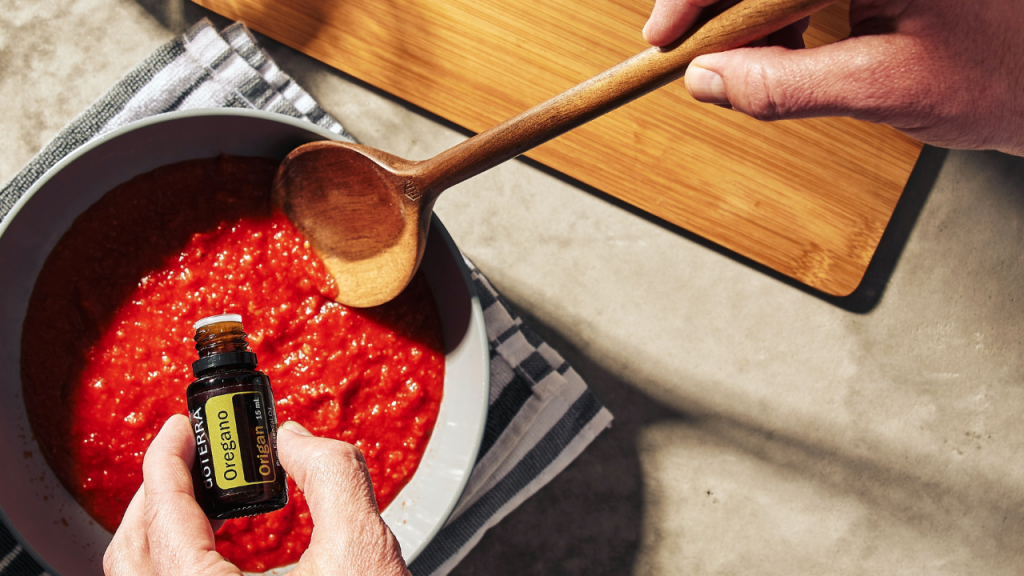Essential oils aren’t just for the spa and diffusers anymore! Certain oils can be incredibly useful in the kitchen and offer several benefits including the ability to know the source of your flavourings, saving money (as it only takes a drop or two), and convenience because you’ll always have what you need on hand.
You can use essential oils in salad dressings, drinks, and smoothies, in place of dry seasonings or herbs, and in baking, just to name a few.
But is it safe to cook with essential oils?
Essential oils have a lot of flavour, and because they are rarely called for in recipes, it is important to know when to add them. A good rule of thumb is to add them toward the end of the cooking process to preserve the most flavour.
You can always turn to herbs and spices for flavour and aroma, but sometimes it is just easier and more powerful to add a drop or two per day of a food-safe essential oil instead of spending time chopping, slicing, and preparing herbs and spices. There are a variety of essential oils that can be used in the kitchen. Before you even think of adding a drop to any recipe, be sure that the oils are food safe. For a complete list of essential oils that are safe for cooking, check out this list from the FDA.
The best essential oils for cooking:
Lemon Essential Oil
Bursting with citrusy brightness, lemon essential oil adds a zesty kick to both sweet and savoury dishes. A drop in salad dressings, marinades, or desserts can bring a refreshing twist to your creations.
Basil Essential Oil
Renowned for its aromatic and peppery notes, basil essential oil is a fantastic addition to Italian and Mediterranean dishes. Think pasta sauces, pesto, and even grilled vegetables.
Peppermint Essential Oil
With its cool and invigorating flavour, peppermint essential oil is perfect for desserts like chocolates, ice creams, or even infused into hot beverages.
Oregano Essential Oil
Just a drop of oregano essential oil can transport your taste buds to the Mediterranean. It pairs exceptionally well with tomatoe-based dishes, roasted vegetables, and grilled meats.
Ginger Essential Oil
Intensely spicy and warming, a ginger essential oil is an excellent substitute for fresh ginger in various recipes, from stir-fries to baked goods.
Lavender Essential Oil
Delicate and floral, lavender essential oil is a surprisingly versatile addition. Use it in baking, marinades, or even infused into syrups for a touch of elegance.
READ MORE: How to make infused oils
While cooking with essential oils can be a delightful experience, it’s essential to exercise caution:
Purity: Ensure you’re using pure essential oils without any synthetic additives or contaminants.
Moderation: A little goes a long way. Overusing essential oils can overpower the dish and be detrimental to your health.
Allergies and Sensitivities: Be mindful of any allergies or sensitivities to specific plants before using their essential oils in cooking.
ALSO SEE: How to make your home smell great
Written by Maegan-Leigh Jacobs
Feature Image: Pexels

